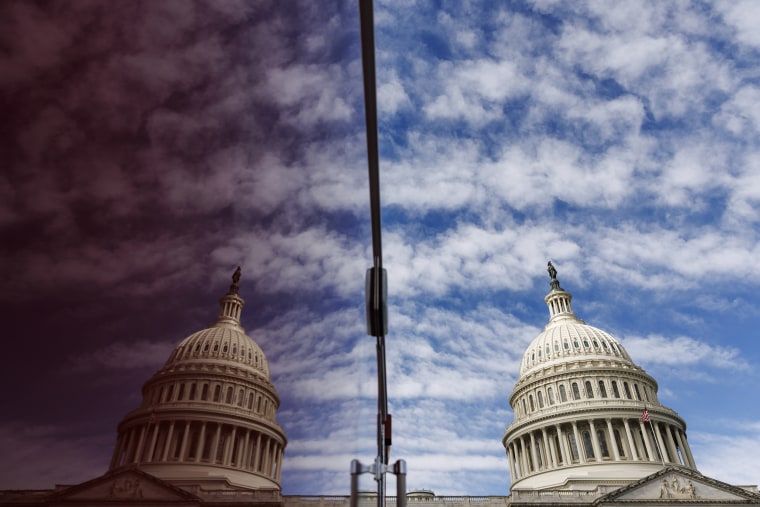A year ago this month, The New York Times reported that GOP officials had come to an uncomfortable conclusion: Climate denialism was a political loser for the party.
“[M]any in the Republican Party are coming to terms with what polls have been saying for years: Independents, suburban voters and especially young Republicans are worried about climate change and want the government to take action,” the article explained.
As we discussed soon after, it led some GOP leaders to believe they should at least pay lip service to global warming — not because of the intensifying planetary threat, but because failing to make such acknowledgements might interfere with the party’s electoral prospects.
The more Republicans are seen as climate deniers, the more the national party puts itself at a political disadvantage. The party even felt the need to form the Conservative Climate Caucus and the Energy, Climate, and Conservation Task Force as a way of demonstrating an interest in the issue.
With this in mind, the House GOP last week rolled out what it described as a six-pillar climate “plan.” That, for lack of a better phrase, is the good news. The bad news is the “plan” is difficult to take seriously. The New Republic’s Kate Aronoff explained:
The six pillars themselves are a grab bag of buzzwords presumably harvested from the party’s favorite think tanks and trade associations: “Unlock American Resources,” “Let America Build,” “American Innovation,” “Beat China and Russia,” “Conservation With a Purpose,” and “Build Resilient Communities.” The policies therein, accordingly, are the same things Republicans have been asking for for as long as anyone can remember.
The blueprint barely exists in any meaningful way: House Republican leaders issued a relatively brief press release, noting the six prongs of their climate vision, accompanied by a two-page document calling for more oil drilling. (Aronoff added that the document “exists mainly as a chaotically formatted two-page list of talking points.”)
This, of course, represented the first of the six ideas, and those looking for details about the other five will have to wait — because GOP lawmakers apparently unveiled a plan without finishing most of their plan.
Making matters considerably worse, when the first pillar of a party’s climate strategy is expanding oil and gas production, it’s an unambiguous reminder that the party isn’t making a real effort to solve the problem.
So why am I a little encouraged by the existence the Republicans’ “plan”? Circling back to our earlier coverage, there’s something to be said for changing circumstances that make blanket climate denialism politically untenable.
Several years ago, Kevin Drum wrote a terrific item on the evolution of the right’s approach to the climate crisis, noting that conservatives started by denying rising global temperatures, before chalking up rising global temperatures to natural phenomena, and then arguing that doing anything about rising global temperatures was too difficult.
Ultimately, however, much of the right scrapped each of these talking points and simply concluded that global warming was "the biggest hoax ever put over on the American public.” The idea of addressing the climate crisis wasn’t just rejected, it was derided by GOP officials as ridiculous.
As public attitudes shift, and the global crisis intensifies, it appears that House Republicans now want to be able to say they have a proposal to address the problem. Sure, the plan is effectively a joke, but that’s still better than the right pretending the crisis can and should be ignored.
What’s more, this might have some impact on the larger conversation. As things stand, the United States has one major party that’s eager, if not desperate, to reduce carbon pollution and combat the climate crisis, and another major party that believes it’s persuasive to peddle mind-numbing talking points such as, “The climate is always changing.”
Everyone would benefit if instead, we had a debate between competing ideas, predicated on the idea that the crisis is real and in need of serious attention.
The point is not that the House Republicans’ plan has merit; it does not. Rather, my standard for GOP officials is so low that it seems like a minor breakthrough when they grudgingly acknowledge that climate change warrants the unveiling of a plan at all.

